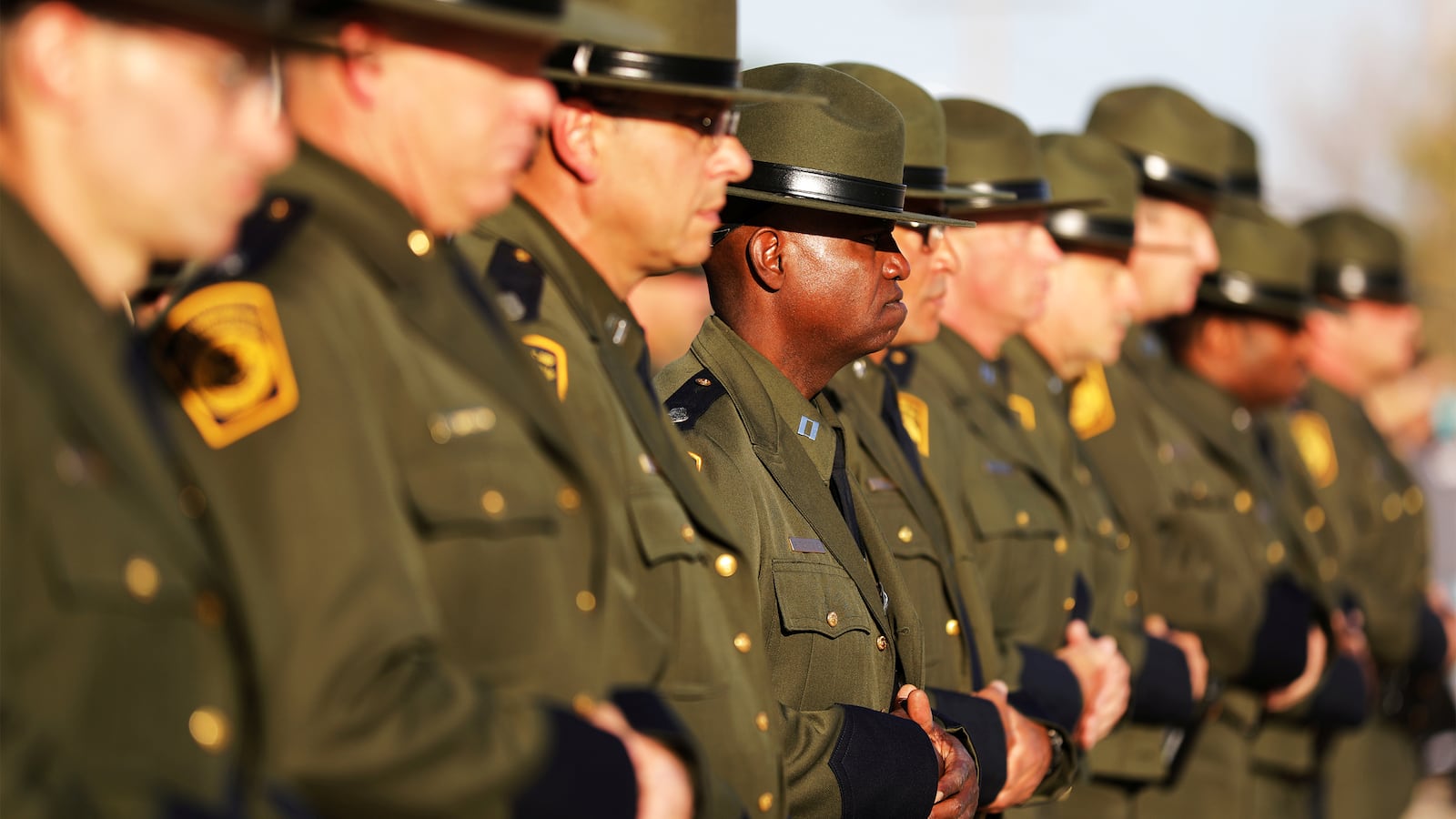The Border Patrol is one of the country’s most powerful law enforcement agencies; it can stop travelers within 100 miles of the border without probable cause.
It’s also one of President Donald Trump’s favorites. He boasted on the campaign trail about his support from agents, and frequently tweets about its work. While he regularly trashes the FBI, his praise of the Border Patrol is unstinting.
Now, the Border Patrol could become even more potent. The Daily Beast can confirm that officials in the Border Patrol’s parent agency, Customs and Border Protection, are quietly advocating to join the country’s powerful collection of intelligence agencies. And some former CBP officials are warning that this combination of border agents and spies could present an “Orwellian problem with law enforcement becoming both investigators and intelligence collectors.”
Sources familiar with the effort tell The Daily Beast that efforts within Customs and Border Protection (CBP) to join the Intelligence Community are significantly more advanced than those within ICE (The Daily Beast reported last week that ICE officials are also looking to enlist). A former senior DHS official said this effort is especially promising under the Trump administration.
“It has been revitalized,” he said.
Reached for comment by email, a spokesperson for CBP did not dispute this story and said the agency “uses intelligence and law enforcement information to carry out our border security, trade, and travel facilitation mission.” A spokesperson for the Department of Homeland Security did not respond to a request for comment.
The prospect a formal relationship between CBP and the Intelligence Community, or IC, deeply unnerves civil liberties advocates. Border Patrol agents can search the phones and laptops of people traveling into the U.S. without warrants. From fiscal year 2016 to 2017, the number of cell phone and laptop searches CBP officials conducted increased dramatically—from 19,000 to 30,000, according to the agency.
Jeh Johnson, the secretary of DHS for the last three years of the Obama administration, told The Daily Beast he supported the change when he headed the Department.
“I thought it was a pretty good idea, because what CBP has to offer and contribute to the IC is travel data,” he said.
Efforts within CBP to join the IC point to a broader trend: the increasingly close relationship between spy agencies (including the CIA and the NSA) and law enforcement.
“I think it would be extremely dangerous for CBP to become part of the IC,” said Robyn Greene, who heads government affairs for the Open Technology Institute, adding that searches of cell phones and laptops raise serious questions about constitutional rights.
Some former intelligence officials cautioned that the hardest part of this change could be how it could change the internal architecture of DHS. For them, it’s not a question of why, but how. Under the prior administration, figuring out how to make this change was the most significant hurdle.
And CBP already gathers intelligence, and—per former senior officials—works with America’s spy agencies. Along with the Drug Enforcement Agency, CBP heads a sophisticated intelligence center in El Paso, Texas.
Many of its agents work under dangerous circumstances at the southern border, sometimes facing off against members of extraordinarily violent cartels smuggling drugs and trafficking people into the U.S. They are part of the country’s single largest police force, according to The Atlantic, with more than 40,000 total gun-carrying agents in CBP. That’s more than the total number of people—armed or not—in the entire FBI.
The former official who said CBP’s efforts were “revitalized” also cautioned that the increasingly formal relationship between law enforcement and intelligence brings the potential for abuse.
“I can, without your knowledge, spy on you—go get a warrant, and a FISA warrant is nothing to get, as we’ve all seen now—and I can detain you,” he said. “I can suspend your civil liberties, and I can refer you for prosecution, and there’s nothing you can do about it. You’ll never see it coming.”
“If you’re a U.S. citizen and it’s done for political purposes, it gets really frightening,” he continued.
But he added that CBP’s current intelligence-gathering work—especially data about travelers coming into the U.S.—could make it a valuable addition to the IC. And he said the scrutiny that comes with IC membership could have a net benefit for civil liberties.
“De facto, they operate as if they are,” he said. “So why not make them one, and put Intelligence Community oversight on them?”






